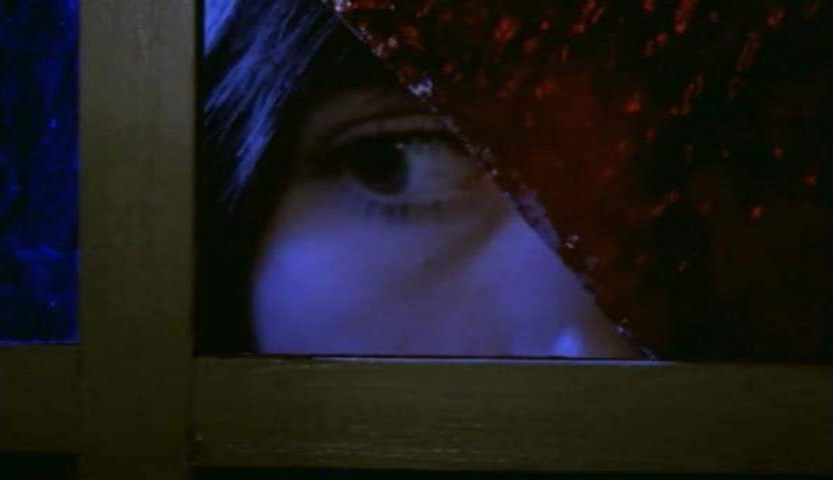
In a rural Italian village at the height of WWII, Rosa (Leonora Fani) and her mother Marta (Lidia Biondi) run a hotel. Rosa eagerly awaits her father’s return from the war while her mother hides her deserter lover (Francisco Rabal) in a dilapidated wing of the hotel. When Rosa’s mother dies under mysterious circumstances, Rosa is left to fend for herself and to keep the hotel’s guests at bay. As Rosa’s harassment by the hotel guests escalates into a full blown assault, a cloaked figure begins to exact revenge on Rosa’s behalf.
Pensione paura (1978) is director Francesco Barilli’s follow-up feature to Il profumo della signora in nero (1974). Barilli’s Pensione paura doesn’t emphasize gore and violence but prefers tension instead. For the first hour of Pensione paura the tension escalates gradually until it reaches a fever pitch in the form of the scene in the closet where the evil Rodolfo (Luc Merenda) rips off Rosa’s panties.
Barilli’s brand of suspense is very Victorian; all the tension in Pensione paura stems from the threats on Rosa’s virture. As soon as Rosa is assaulted by Rodolfo and his mistress (Jole Fierro) the film goes into a manic tailspin. The release from suspense that accompanies Rosa’s rape is suggested as a signifier of her trauma. The ensuing bloodbath, with all of its left-field tonal shifts, could likewise represent the emotional turmoil that Rosa experiences.
The issue then becomes one of perspective. From the start of Pensione paura up until Rosa is attacked the scope of the narrative has been entirely limited to the hotel (with the exception of one scene at the vicarage and two silent scenes at a cemetery). As soon as Barilli introduces Rosa’s mysterious avenger all sense of narrative scope and perspective is jettisoned. From that moment the plot takes on more twists than a barrel of pretzels and moves at such a rapid pace that the audience has no time to become re-oriented.
Throughout the first hour of the film, during that period where Barilli slowly builds suspense, Pensione paura is full of little details designed to give dimension to the film’s setting. The scene where Rosa goes to the vicarage to haggle with a priest for eggs serves no narrative purpose. This scene does, however, provide the audience with a sense of the political hierarchy of a rural Italian village as well as the hardships created by the ongoing war.
Pensione paura is more of an intriguing film than an engrossing one. Barilli’s stylistic posturing and formal experimentation provides a lot of food for thought at the expense of the plot. As a portrait of systemic abuse and oppression Pensione paura excels as a thriller. Rosa’s navigation of a predatory patriarchal culture makes for far more compelling watch than Barilli’s attempts at Hitchcockian plot-twists.
